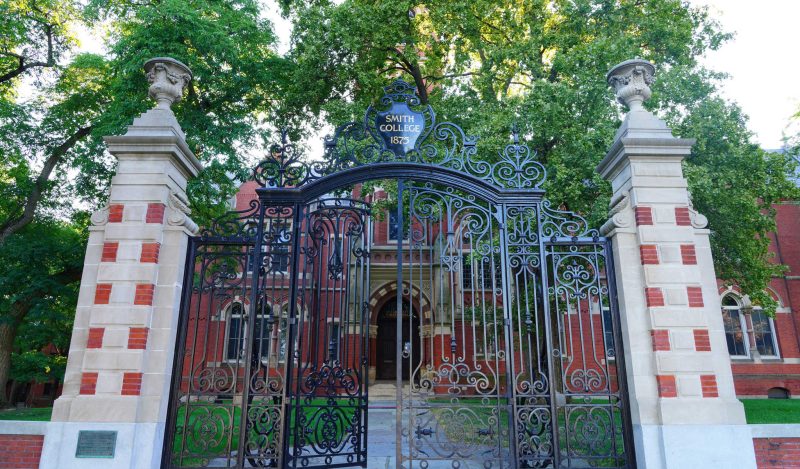A handful of colleges have recently announced they will require students to get the new COVID-19 bivalent booster shot.
Harvard University and Smith College are both requiring students to take the bivalent booster but not faculty and staff. Tufts is mandating the bivalent booster for everyone, and for the first time ever, mandating the flu vaccine for students only. Some University of California (UC) college websites state that the UC vaccine policy requires all staff and students to get the bivalent vaccine, but other UC websites invite comments to the “proposed revisions to the UC Policy on Vaccination Programs” by Dec. 1, 2022. Whitman College is requiring the bivalent booster for everyone, and Wake Forest has announced it will require the bivalent booster “when it becomes available.”
For thousands of college students, this means they will be required to get a second booster dose that was approved without any human clinical trials to establish the safety and efficacy of the new formula and that was rushed through development “when we are at practically historic lows for deaths and ICU stays due to COVID.”
On Aug. 11, 2022, the Centers for Disease Control and Prevention (CDC) updated its COVID-19 guidance. Most notable is that the CDC stated that people with previous infection have some immunity from severe infection. Colleges that maintain “blanket mandates ignore critical data, such as the benefit of prior infection and the data on adverse events” per a study authored by academics from the Universities of Washington, Oxford, Toronto, Harvard, Johns Hopkins, UCSF, and others.
The study estimates that “per Covid-19 hospitalisation prevented in previously uninfected young adults, we anticipate 18 to 98 serious adverse events, including 1.7 to 3.0 booster-associated myocarditis cases in males,” and concludes “university Covid-19 vaccine mandates are likely to cause net expected harms to young healthy adults.”
While updated CDC guidelines have made it clear that we are at the point of living with the virus and the guideline “changes shift much of the responsibility for risk reduction from institutions to individuals,” according to the New York Times, the American College Health Association (ACHA) is doubling down on instilling fear that COVID-19 cases are “on the rise.”
This claim is highly suspect and difficult to verify as many college campuses such as the State University of New York (SUNY), the largest state college system in the country, no longer track COVID-19 cases, and UC Davis, which has the third largest student population of the University of California campuses, shows a decline in COVID-19 cases in the last month.
The self-proclaimed “voice for student health and wellness,” the ACHA represents over “700 institutions of higher education and the collective health and wellness needs of 20 million college students.” The ACHA conducts research and provides educational materials to its member colleges in the hopes of being the “voice of expertise in college health.” A significant number of the most prestigious colleges in the United States are members of the ACHA, and most of those colleges are also the ones with the strictest vaccine mandates, unless they’re in states where vaccine mandates are prohibited by law.
In an effort to influence college COVID-19 policies as students returned to campuses in the last month, the ACHA recently released the results of a national study that assessed COVID-19 vaccine uptake, attitudes, experience, and intentions among college students (pdf). The ACHA claims to “recognize the continued importance of vaccination in reducing the impact of COVID-19 on our campuses,” and the study is meant to “support these efforts.”
The study concludes that “[v]accine requirements are highly effective at boosting uptake on college campuses and at making students feel safer.” However, markedly absent is any recommendation for accessing resources that communicate safety and efficacy data for young adults, and nowhere in the report does it mention that the CDC now recognizes natural immunity and that new guidelines have shifted towards individual responsibility.
When evaluating whether the ACHA’s recommendations are unbiased and ethically sound, we should seriously consider the funding the ACHA receives from Pfizer and the $2 million grant it received from the CDC to “promote COVID-19 vaccine confidence.”
It would seem that the ACHA expects resistance to continued vaccination on college campuses as it has also published a document (pdf) that advises colleges on how to manage “aggressive opposition” to vaccine campaigns so as to mitigate disruptions to vaccine efforts. If the ACHA is “the voice” for 20 million college students, why are they not advocating for the students who are opposed to vaccines? Why are they not advocating that colleges recognize natural immunity as protective?
Why are they not analyzing studies that highlight the dangers of continued vaccination for young adults? Why are they advocating for vaccine requirements that make students feel better when “[r]isk-benefit assessments should remain objective and avoid the use of some people feeling better or safer to justify behavioral rules with sanctions for non-compliance in the absence of rational justification,” according to the abovementioned study?
Instead, the ACHA created a “Vax Forward digital toolkit” for the student ambassadors they want to use as pawns to coerce other students to get vaccinated. The toolkit is fraught with claims unsupportable by data. It encourages student ambassadors to “frame vaccination as a way to protect family and friends,” to state “it is normal to have some side effects,” to “stress that long-term risks from getting COVID are greater than potential side effects of the vaccine,” to state that “researchers … didn’t skip any safety steps,” and finally to normalize COVID-19 vaccines by comparing them “to other vaccines most students got before starting college.”
Colleges have known since mid-2021 that COVID-19 vaccines do not prevent infection or reduce the community spread. In addition, college students are not at high risk for severe illness or hospitalization from COVID-19, yet they are forced to risk potential adverse events when they are stripped of the fundamental right to informed consent and a risk/benefit analysis in consultation with health care providers.
Colleges should immediately rescind all COVID-19 vaccine mandates. The most recent letter from campaign group “No College Mandates,” of which I am co-founder, to colleges urges them to drop vaccine mandates for both ethical reasons and their possible exposure to significant legal liability. Nearly 200 colleges that mandate vaccines have received this letter and more are on the way.
Reposted from EpochTimes
Published under a Creative Commons Attribution 4.0 International License
For reprints, please set the canonical link back to the original Brownstone Institute Article and Author.









